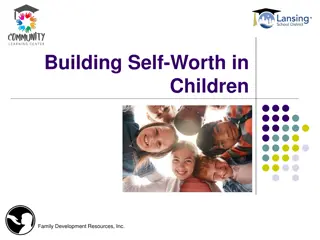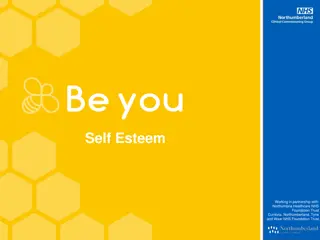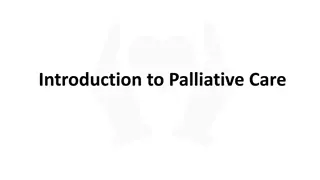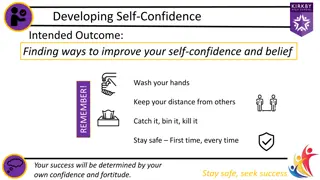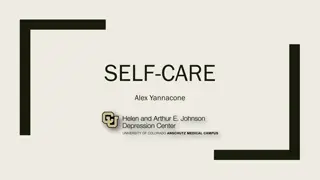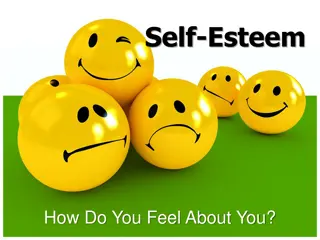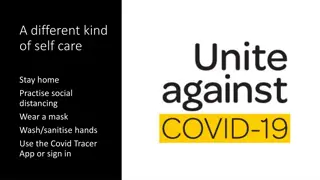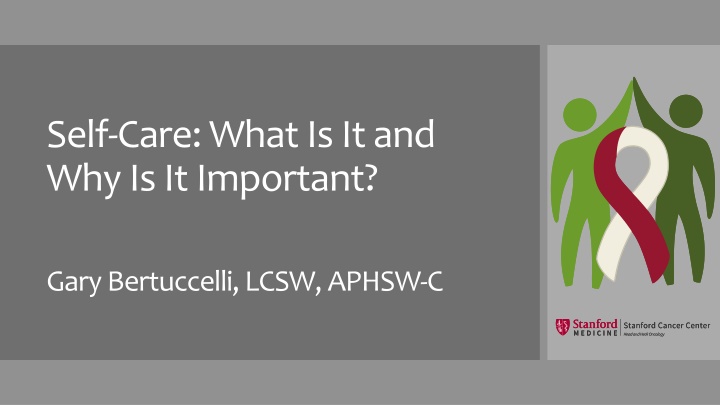
Importance of Self-Care: Benefits, Types, and Strategies
Explore the significance of self-care for physical, mental, and emotional well-being. Discover the benefits, types, and practical ideas to enhance self-care practices for a healthier and more fulfilling life.
Download Presentation

Please find below an Image/Link to download the presentation.
The content on the website is provided AS IS for your information and personal use only. It may not be sold, licensed, or shared on other websites without obtaining consent from the author. If you encounter any issues during the download, it is possible that the publisher has removed the file from their server.
You are allowed to download the files provided on this website for personal or commercial use, subject to the condition that they are used lawfully. All files are the property of their respective owners.
The content on the website is provided AS IS for your information and personal use only. It may not be sold, licensed, or shared on other websites without obtaining consent from the author.
E N D
Presentation Transcript
Self-Care: What Is It and Why Is It Important? Gary Bertuccelli, LCSW, APHSW-C
Objectives Define Self-Care Outline the Benefits of Self-Care Explore the Types of Self-Care Self-Care Ideas Questions
Family Caregiver Statistics Estimated 43.5 million family caregivers in US Estimated economic value of the care they provide was $470 billion in 2013 4 of 10 family members are in high burden situations On average, family caregivers provide 24.4 hours of care per week, up to 40.7 hours per week for family caregivers living in the home Average duration of the caregiving role is 4 years Positive activities in the caregivers life are reduced by 27.2%
Overview What do you think of when you hear the term self-care? How is it for you when people tell you to take care of yourself?
Definition of Self-Care It s any conscious act we take in order to promote our own physical, mental and emotional health. It s vital for building resilience toward those stressors in life that we can t eliminate. It s about being as kind to ourselves as you would be to others. It s knowing when our resources are running low and stepping back to replenish them rather than letting them all drain away. It involves integrating self-compassion into our life. It s knowing that not everything that feels good is self-care.
Benefits of Self-Care Better productivity Improved resistance to disease Better physical health Enhanced self-esteem Increased self-knowledge More to give
Types of Self-Care Sensory touch, smell, sight, sound (e.g. cuddling up under a soft blanket; smelling the sea air; feeling the warm water on your skin in the shower; feeling the sun on your back; listening to music with your eyes closed) Emotional emotions are not good or bad in themselves. You re not to blame for your emotions, only for how you behave in response to them. Feel them, accept them, and move on. (e.g. keep a daily journal; see a therapist; make time with someone who truly understands you; let yourself cry; encourage yourself to laugh with old memories or funny movies; sing along to a song that expresses your current emotion). Spiritual getting in touch with your values and what really matters to you; developing a sense of purpose. (e.g. keep up a daily meditation practice; attend a service religious or humanistic; walk in nature; make a list of 5-10 things you are grateful for; say affirmations that ground your sense of self/purpose).
Types of Self-Care Physical physical activity is vital for bodily well-being but also for helping to let off steam. (e.g. dance to your favorite song; do yoga; join a class and learn a new sport; go for a walk; cycle through the countryside). Physical self-care can also be things you don t do (e.g. nap when you need to; say no to invitation when you re too tired to enjoy them; don t push yourself to exercise when you re run down or unwell; get 7-9 hours of sleep per night). Social Choosing to do things with people who really make you feel good. World Health Organization 1998
Twenty-one More Self-Care Ideas 1)Replace should in your vocabulary 2)Take 15 minutes to soak up the sunshine 3)Laugh! 4)Make your bed 5)Watch an episode of your favorite TV show 6)Reflect on previous wins and achievements 7)Work on a puzzle you enjoy but that challenges you (Sudoku, jigsaw, crossword) 8)Make sure to drink at least 8 glasses of water today 9)Dance like no one is watching 10)Go to the movies on your own 11)Do something for charity 12)Consider joining a local support group
Twenty-one More Self-Care Ideas 13)Start a journal 14)Learn how to give yourself a massage and do it 15)Write a letter to your older self 16)Write a letter to your younger self 17)Do something fun you used to do as a kid 18)Change your bedsheets and have an early night 19)Read inspiring quotes 20)Reread your favorite book 21)Smile at yourself in the mirror (self-care ideas taken from the work of Katherine Hurst author of THE SECRECT LAW OF ATTRACTION)
Conclusion What would you say to a friend or family member who says, I don t have time for self- care? What is one self-care thing you will do today?


